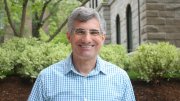The University reported that its fundraising efforts had yielded $596 million in cash support during fiscal year 2010, ended last June 30, nearly level with the $602 million raised during the prior year. Those totals include cash gifts for current use, capital giving directed to the endowment, and payments made on pledges from prior years. Harvard’s statement also noted that alumni participation in fundraising had increased “slightly.”
Both results appear favorable compared to recent experience in higher-education fundraising. According to a June 24 report in the Chronicle of Higher Education, the 2009 Index of Higher Education Fundraising Peformance (compiled by Target Analytics) showed declining annual-fund revenue and donor participation during that troubled period. For that year, Harvard recorded a decline in gifts for endowment, compared to the 2008 figure (which had several large, one-time gifts), but a significant increase in current-use giving. (Fiscal 2010 data on Harvard’s current-use and endowment gifts will be available in October, when the University’s annual financial report is published.)
In a conversation at her Massachusetts Hall office, vice president for alumni affairs and development Tamara Elliott Rogers '74 characterized the results as “basically even” at a time when supporters were, with good reason, feeling uncertain about economic and financial circumstances. “Thanks to them,” her statement said, “we are holding steady. For that, we are tremendously grateful.” The statement cited “fundraising for immediate needs,” or unrestricted, current-use giving, as “an area of significant focus for the Faculty of Arts and Sciences,” whose Harvard College Fund exceeded its $40-million goal for such funds. Rogers also said that Harvard Business School, Harvard Medical School, and Harvard Kennedy School had had particularly good results.
Rogers noted that the University’s ability to raise $600 million in cash in challenging circumstances was a “huge” advantage, not only for sustaining academic operations but also as “great place to start from” as the basis for a future capital campaign. She described herself as “highly encouraged by the number of donors” participating. She pointed to the “spectacular success with senior gift participation” last spring, as the College class of 2010 recorded an 80.2 percent giving rate—6 percentage points better than the past record. Some studies indicate, she said, that an overwhelming majority of future large givers to their alma maters made their first gift as graduating seniors.
As for any University capital campaign, Rogers said, she and colleagues are “planning vigorously”—an interactive process of identifying academic needs and assessing supporters’ interests and external conditions. She echoed the message conveyed by President Drew Faust in an interview on September 8: The initial strategizing and the “quiet phase” of actual fundraising—where institutions seek to secure commitments for a substantial minority of their capital goals—could consume the “next couple of years,” Faust said, before any public announcement. Much depends, the president said then, on donors’ response to ideas, in light of the continuing uncertainties in the financial markets.








